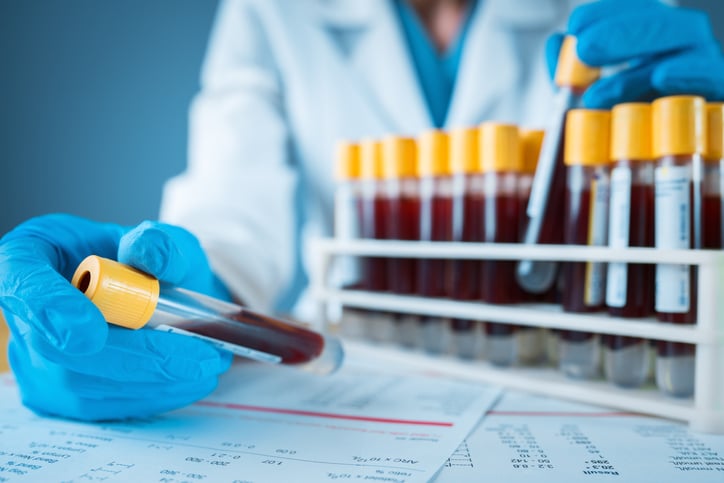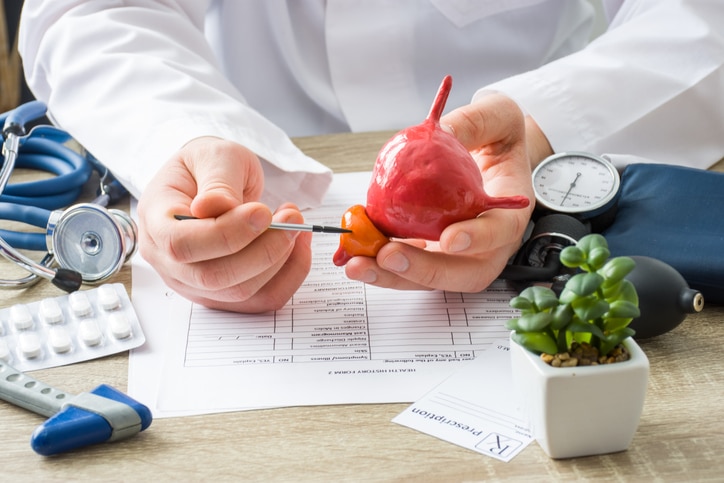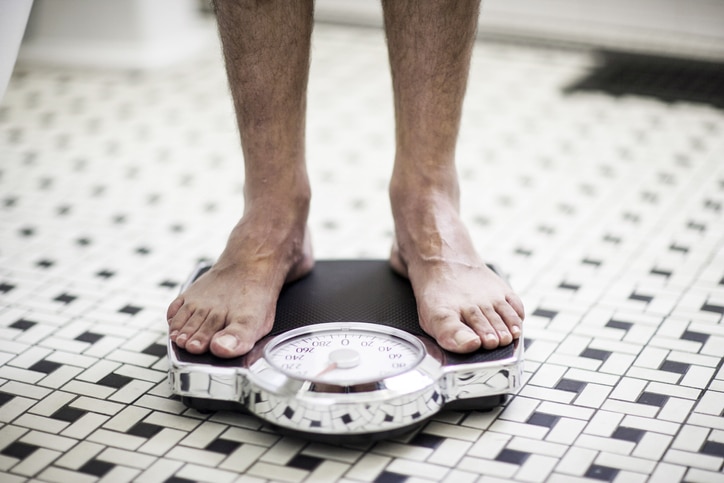Men with abnormally low testosterone, or low-T, can feel a range of physical and emotional symptoms, from decreased sex drive and erectile dysfunction to low energy levels and mood swings.
“They call it ‘andropause,’ instead of menopause,” says Gregory C. Lieser, MD, urologist on the medical staff at Methodist Richardson Medical Center. “And it can be a serious drag on your quality of life.”
Some boys are born with hypogonadism, also known as “low-T,” but it more commonly develops later on, usually after age 45, and either because of an injury or infection or in conjunction with other maladies like diabetes and obesity. Up to 4 in 10 men report experiencing its effects.
“We all have different levels of testosterone, and it’s normal for it to decline as men grow older,” Dr. Lieser says. “But when it drops below a certain threshold, you can feel the effects.”
Working with a urologist can confirm if your symptoms are caused by low-T. If they are, you may consider testosterone replacement therapy (TRT) to treat the symptoms.
This solution is not appropriate for everyone, however, so working closely with an experienced healthcare provider is important.
“Every guy doesn’t need to have his testosterone checked after a certain age,” Dr. Lieser says. “But I’ve had good results with this treatment for patients who have these symptoms and don’t know why.”
UNDERSTANDING LOW-T
Testosterone is the hormone responsible for changes experienced by adolescent boys during puberty. It also helps create sperm. If you don’t have the proper levels of testosterone in the body, you have low-T.
In addition to decreased sex drive, erectile dysfunction, low energy, and mood swings, low-T may cause several issues:
- Anemia
- Difficulty concentrating
- Hair loss
- Increased body fat
- Insomnia
- Loss of calcium in the bones
- Loss of muscle mass and strength
 It’s best to take blood for lab work early in the day because testosterone levels can fluctuate.
It’s best to take blood for lab work early in the day because testosterone levels can fluctuate.
TREATMENT OPTIONS
TRT is a way to introduce testosterone into your system to balance your hormone levels and lessen symptoms. TRT therapy can be delivered through:
- Injections
- Patches
- Skin gel
- Under-skin pellets
To be fully effective, TRT must be continued throughout life. If the treatment is discontinued, your hormone levels are likely to drop again.
“It’s lifetime therapy,” Dr. Lieser says. “If you’re going to do it, you’re going to need to keep doing it in order to get the help.”
Skin gel is the most frequently chosen method of TRT treatment, with an estimated 70% of men with low-T using it. The gel is easy to administer by rubbing into the shoulders or the upper areas of your arms after you get out of the shower.
 Testosterone therapy can worsen an enlarged prostate, a condition known as benign prostatic hypertrophy, or BPH.
Testosterone therapy can worsen an enlarged prostate, a condition known as benign prostatic hypertrophy, or BPH.
PROS AND CONS
TRT can be highly effective in reversing the effects of low-T, including boosting energy and sex drive. However, increasing your testosterone levels with TRT can also result in undesirable side effects:
- Acne
- Enlarged prostate
- High red blood cell count
- Swollen ankles and feet
- Enlarged breasts
Additionally, and somewhat counterintuitively, the treatment can cause infertility because it impedes sperm production and causes the testicles to shrink. The brain essentially detects an abundance of testosterone and puts the brakes on the body’s natural process of producing sperm.
 The treatment can also aggravate sleep apnea, a disorder often treated with a CPAP breathing machine.
The treatment can also aggravate sleep apnea, a disorder often treated with a CPAP breathing machine.
WHEN TRT IS NOT AN OPTION
A variety of pre-existing conditions may make TRT a dangerous option for managing low-T. If you are living with the following conditions, TRT may further compromise your health:
- Elevated red blood cell count
- Heart complications
- Sleep apnea
- Cancer, particularly prostate cancer
Anyone with a history of prostate cancer should find another alternative to treat their symptoms, Dr. Lieser says.
“Testosterone accelerates the growth of prostate cancer,” he warns. “It’s like pouring gasoline on a fire.”
 Losing weight is a natural way to help your body boost testosterone levels.
Losing weight is a natural way to help your body boost testosterone levels.
NATURAL REMEDIES
If you are living with low-T and cannot use TRT because of other health conditions, a natural approach to treatment may be right for you.
Dr. Lieser, however, cautions against using supplements that claim to be a natural form of testosterone enhancement.
“The problem is they’re unregulated, so it’s hard to say what you’re getting,” he says.
Instead, your healthcare provider can help you establish a routine of lifestyle adjustments to enhance your quality of life:
- Choose a nutrient-rich menu. Focus on foods rich in vitamin D and zinc, such as beans, meat, nuts, poultry, and seafood. Also, limit your intake of saturated fat and sugar.
- Manage weight. If you are overweight or obese, take steps to lose excess weight by exercising regularly and eating foods low in calories and saturated fat.
- Prioritize sleep. Set a goal to get seven to eight hours each night. Try to go to bed and wake up at the same time every night and morning, and keep electronics out of the bedroom.
- Reduce stress. Regularly take time to engage in relaxing activities that you enjoy, such as golf, reading, or taking walks. Also, try not to overbook your schedule or overextend yourself.

